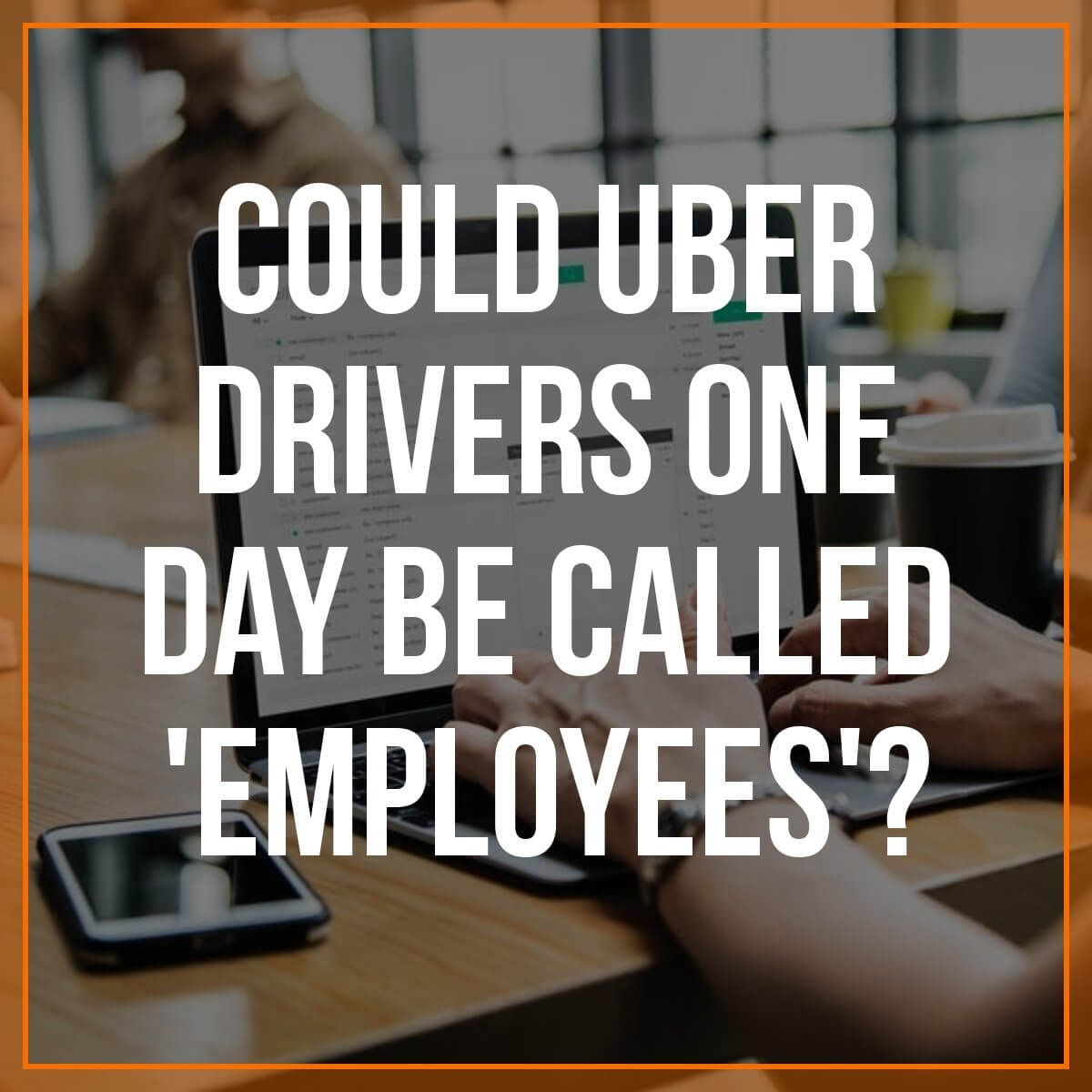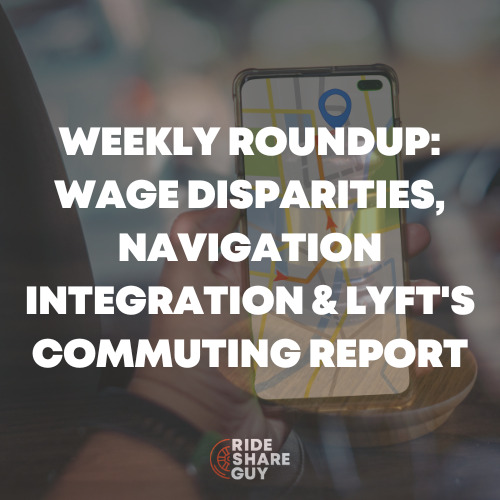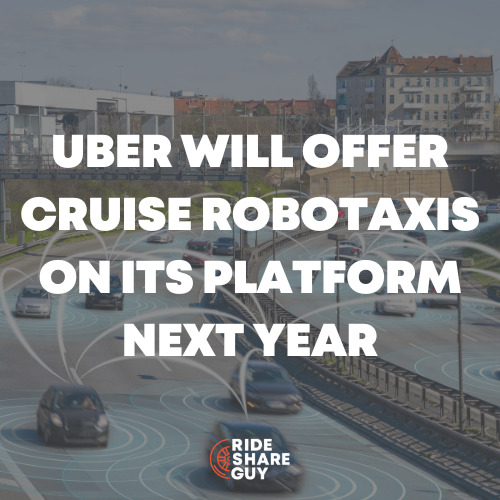There could be significant changes to how Uber (and potentially Lyft) classify drivers in the future – with one big caveat. That, plus senior RSG contributor John Ince covers a new study documenting ridesharing’s impact on local roads, vomit scams, and more in this week’s round up.

Uber drivers “employees” for unemployment purposes, NY labor board say [Ars Technica]
Sum and Substance: New court ruling could force Uber, Lyft to convert drivers to employees.
New York City’s largest taxi driver advocacy group is hailing a legal decision by the New York State Unemployment Insurance Appeal Board, which ruled last Friday that three out-of-work Uber drivers can be considered employees for the purpose of unemployment benefits. The decision was first reported Thursday by Politico.
In other words, three men—and possibly other “similarly situated” Uber drivers who had quit over low pay or who were deactivated from the Uber platform—can get paid.
“The decision means that New York Uber drivers can file for unemployment insurance and likely receive it,” Veena Dubal, a labor law professor at the University of California Hastings College of the Law in San Francisco, emailed Ars.
“Uber may appeal the decision to state court, but for now, it’s good law.”
For years, Uber has fought tooth and nail against having its drivers be classified as employees, and not only in the United States—Uber lost a similar case in 2016 in the United Kingdom, and a major case on this exact issue is currently pending before the 9th US Circuit Court of Appeals in San Francisco. By having significantly fewer employees than it otherwise would, Uber likely saves millions of dollars each year by not paying for drivers’ health, retirement, unemployment, or other benefits that typically come with full-time employment. …
This case, which only focuses specifically on the issues of unemployment benefits claims, comes just two months after the California Supreme Court ruled in a case known as Dynamex, which makes it harder for companies to unilaterally declare that their workers (or, in Uber’s case, “driver-partners”) are simply contractors.
My Take: Drip by drip Uber and other “gig economy” companies are being forced to consider a new reality: driver are employees – not independent contractors. This decision follows similar rulings in California and London.
This new reality will force a reconsideration of business models all across the gig economy. While these three drivers can start collection unemployment immediately in New York, Uber isn’t going down easily. They have the resources to litigate this all the way to the Supreme Court – where the tilt is definitely moving toward pro-business. So if it gets that far, I wouldn’t bet against Uber.
Ride-sharing causes far more city traffic than it prevents: report [Crain’s New York]
Sum and Substance: Uber and Lyft have long argued that they are a complement to mass transit, and that with the growth of their pooled-ride services they are reducing individual car use, congestion and pollution in this city and others.
Not so, according to a report released Wednesday. Ride-hail services are more likely to be undermining mass transit than helping it, by providing a convenient option for travelers who otherwise might have taken the subway. And the companies’ heavily promoted pooled rides are not, in fact, cutting the number of miles that people travel in cars, but adding to them.
About 60% of ride-hail company users “in large, dense cities would have taken public transportation, walked, biked or not made the trip” if those services had not been available, writes transportation consultant Bruce Schaller in “The New Automobility: Lyft, Uber and the Future of American Cities.” The other 40% of users would have taken their own car or a taxi.
…Both companies stressed that they are also now including bike share as part of the offerings on their app. Uber recently purchased Jump Bike, a pedal-assist e-bike service, while Lyft owns Motivate, the parent of Citi Bike.
My Take: This study’s findings are certainly not good news for Uber and Lyft. I’m not surprised by the findings – especially that pooled/shared rides only improve the picture marginally.
For cities looking to impose usage fees for city streets, this study gives them more ammunition. Look for aggressive moves from municipalities in limiting what Uber/Lyft can and cannot do.
Scoop: Ex-Uber employees form group to invest in former colleagues [Axios]
Sum and Substance: Two former Uber executives are quietly operating an investor syndicate to invest in startups led by their former colleagues, Axios has learned.
Bottom line: There should be plenty of deal-flow, as Uber is known for encouraging its employees to innovate. It’s called Moving Capital, and also invests in two-sided marketplace and transportation startups. Initial portfolio companies include Lime and Cargo.
…Don’t be surprised if Moving Capital soon evolves from a private AngelList syndicate to a more traditional VC fund structure. Last week I was chatting with some VCs about the relative dearth of Seattle startups, expressing surprise that neither Amazon nor Microsoft have really become founder factories. A few of them suggested that lots of startups would likely come out of Uber, due to to a highly-entrepreneurial environment (particularly on the ops side). As one explained: “No matter what you think about Uber’s culture, everyone there will tell you that team leaders were basically running mini-companies, with lots of ability to try new things.”
My Take: The formation of this investor syndicate illustrates just how clubby investor groups are. For investors, the Uber connection is a comfort factor. If you once worked at Uber, the fact that someone else worked there is a badge of honor.
Never mind that the Uber culture has long be considered toxic to most outside observers. Never mind about all that legal and moral stuff. Hey, Uber execs cashed out big time in the Softbank deal. That’s all they need to know. If you worked for Uber, you’re a winner, and investors like to invest in other winners.
Riders Say Uber Drivers Are Using Vomit To Scam Them [Huffpost]
Sum and Substance: Some Uber riders in Florida are accusing their drivers of engaging in some truly stomach-churning fraud. According to the el Nuevo Herald, several customers claim unscrupulous drivers have falsely accused them of puking inside the Uber vehicles, making the riders responsible for bogus clean-up charges.
The shysters will reportedly pick a customer up, deliver them to their intended destination and then report to Uber the individual vomited in the vehicle. The drivers allegedly provide the company with fake pictures of the mess, whereupon the company hits the passenger with a large clean-up bill…
Some victims have reportedly had a difficult time getting Uber to refund the fraudulent charges. Others said they’ve complained and have yet to receive a refund. Uber told the el Nuevo Herald it is “actively looking into reports where fraud may be detected and will take appropriate actions.” The company added, “the vast majority of cleaning fee reports are legitimately the result of someone making a mess in the car.”
My Take: I guess there’s fraud in just about every line of business these days. Somehow I can’t see how this makes much sense for a driver.
Uber and Lyft should be able to easily determine when pictures are fake or not. If a driver gets caught once in this, they’re gone. Doesn’t seem worth the risk to me. What do you think? Do you know any drivers who have done this?
Readers, what do you think of this week’s round up?
-John @ RSG




